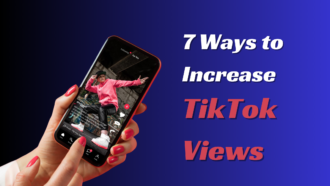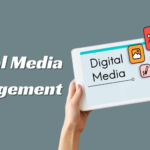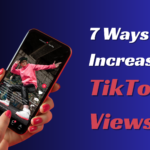3 Tips for a Successful Digital Marketing Campaign
Digital marketing is one of the most important strategies for businesses to reach their target audience and drive more sales. However, creating a successful digital marketing campaign can be difficult if you’re not sure where to start. In this blog post, we’ll cover 3 tips to help you create a successful digital marketing campaign that will help you reach your goals. From defining your target audience to focusing on metrics and analytics, these tips will help ensure your digital marketing campaign is successful. Read on to find out more!
3 Best Tips for a Successful Digital Marketing Campaign
Define Your Target Audience
A successful digital marketing campaign starts with defining your target audience. Knowing who you’re trying to reach and what their needs and wants are will help you craft messages that will resonate with them. To do this, consider who your customers are and what makes them unique. What are their interests? Where do they spend their time online? What motivates them to take action? And finally, how will you find the best digital marketing agency Melbourne? Answering these questions will help you to create a focused strategy that is tailored to your target audience.
It’s also important to think about how to best reach them. Do they use social media, read email newsletters, or look for offers on search engines? Knowing the answers to these questions will help you to create content and develop campaigns that will effectively reach your target audience.
Finally, don’t forget to keep track of what works and what doesn’t. Monitor the progress of your digital marketing campaigns and adjust as needed to maximize your ROI. By continuously optimizing your strategy, you’ll be able to better understand and respond to your customers’ needs.
Set Your Goals
Setting your goals is one of the most important steps when it comes to creating a successful digital marketing campaign. You need to be clear about what you want to achieve, and how you plan to reach those goals. One way to do this is by setting SMART goals – specific, measurable, achievable, relevant and time-bound.
Once you know what success looks like for your business and have set up SMART goals, you should decide who you are targeting with your campaign. If possible, target a specific niche or group that is already interested in what you have to offer – this will save both time and resources on trying to find people interested in new information.
If there’s no easy way to narrow down the audience then consider having different campaigns that appeal to various demographics.
In order for any digital marketing strategy to be successful, proper planning must take place before beginning any advertising efforts. When planning ahead think about your budget for Facebook ads or Instagram sponsored posts etc., how often updates will go out (daily? weekly?), where content will come from (team member?
Experiment With Different Types of Content
In order to be successful in digital marketing, it’s important to experiment with different types of content. Content is an integral part of any digital marketing campaign, as it drives engagement and helps you reach your target audience. Content can come in many forms including video, audio, articles, images, infographics and more. It’s important to explore different types of content and try different strategies to find what works for your brand.
When creating content, think about the type of message that you want to convey to your audience. You should also consider the format and how it will be shared with your audience. For example, if you’re sharing an article or blog post, consider optimizing it for search engines and including visuals such as images or videos to increase engagement.
You should also pay attention to the way your content is presented. Is it easy to navigate? Is the content easy to read? If you want your audience to be engaged with your content, then make sure that the design and layout are attractive and effective.
Finally, don’t forget to track the performance of your content. This will help you understand what’s working and what isn’t so you can adjust your strategy accordingly. By doing this, you can continue to optimize your content and ensure that your campaigns are successful.


















